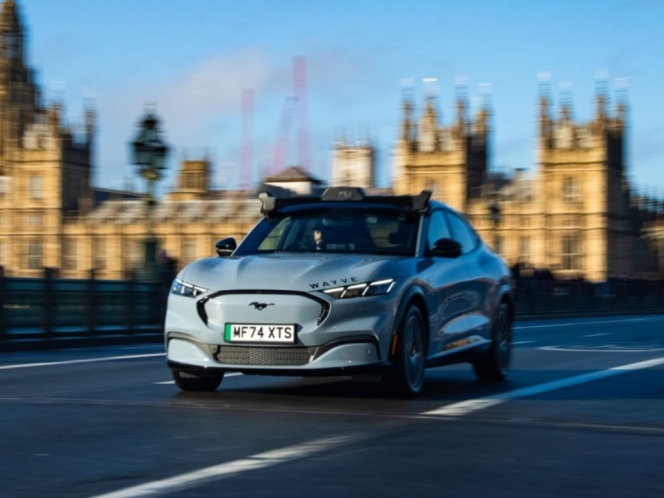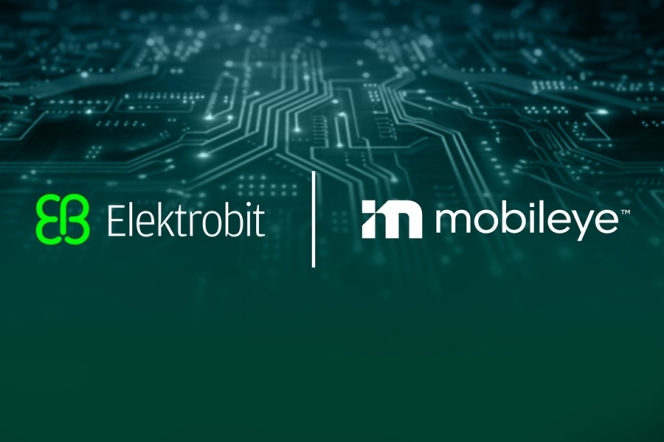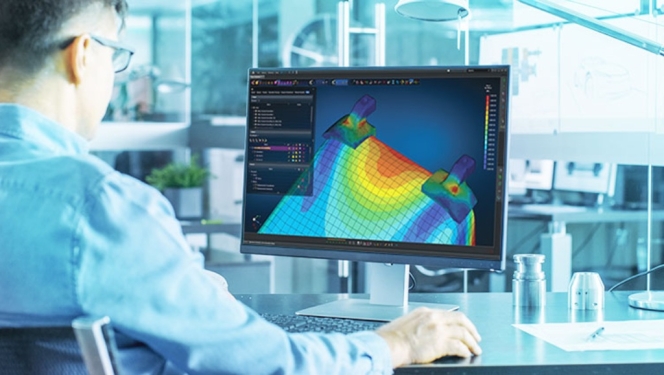
The global shortage of semiconductors or chips in the aftermath of the Covid-19 led pandemic has eased as per a report by Crisil. A development that led most automakers to cut down production significantly and postpone the launch of new models or to put them to production through 2020, 2021, 2022 and a good part of 2023 has finally eased to iron out any supply chain disruptions that may be there.
Expected to address and improve predictive demand forecast, the better availability of chips should enable better production schedules. By FY2025-26, Crisil analysts are of the opinion that demand-supply dynamics should be more balance with additional manufacturing capacities getting commissioned.
With the chips possessing distinct electrical properties that make them the cornerstone of all electronic equipment and devices, it is the auto industry that has come to use them for a variety of functions as automobiles turn increasingly software driven. While the computer and communication equipment (C&C) segment consumes roughly 63 percent of the chips produced, the auto industry consumes roughly 13 percent of them. The other industrial segments consume about 12 percent.
With new developments such as autonomous and EVs, the use of semiconductors in automobiles is only slated to rise. With passenger vehicles the recipient of most technological innovations ahead of other segments such as two-wheelers, three-wheelers and commercial vehicles, it should not come as a surprise that they consume about 1,500 chips on average – the highest among all automobile types.
As more advanced electronic features are incorporated, the use for chips increases. The electric passenger vehicles, for example, use almost twice as many chips as internal combustion engine (ICE) passenger vehicles do. The improving supply and slowing demand for computers and mobile phones is therefore looked upon as a blessing in disguise for automobiles and their manufacturers.
Anuj Sethi, Senior Director, CRISIL Ratings, mentioned, “The chip shortage faced by Indian passenger vehicle makers is easing, with current availability at 85-90 percent of total requirement. The production loss on account of the chip shortage, which had halved to about 300,000 PVs on-year in fiscal 2023, is estimated to have further declined to under 200,000 PVs by the end of September 2023.”
Most passenger vehicle manufacturers are currently operating at near optimal capacity utilisation due to stronger-than-anticipated demand. New orders to be serviced remains high at about 700,000 units at the end of September 2023.
The easing of chip shortage should help automakers honour new orders with better prediction and faster production. Global automobile demand, severely impacted by the Covid-19 pandemic, made a strong recovery in the latter part of FY2021-22. It caught automobile manufacturers off guard as they had not placed substantial orders for chips.
The surge in demand for personal computers, laptops and mobile phones, driven by work from home, virtual learning and remote healthcare services, led to a significant chip procurement challenge for the automakers.
Geographically, the chip ecosystem is skewed, with western nations dominating chip architecture, design, manufacturing equipment, specialised materials and chemicals. Semiconductor fabs1 on the other hand are concentrated in eastern nations, such as Taiwan and South Korea.
Given the criticality of chips in the defense and aerospace industries, the United States and the European Union have offered incentives of about USD 100 billion for localisation of semiconductor fabs. As a result, many global players are slated to spend about USD 360 billion towards setting up new facilities, which would be operational by 2025 and 2026.
In the Indian context, demand for chips will continue to increase over the medium term, driven by the gradual rise in EV adoption and growing demand for advanced feature-laden ICE vehicles.
- Wavye
- Uber
- SoftBank Vision Fund 2
- Eclipse
- Balderton
- Ontario Teachers' Pension Plan
- Baillie Gifford
- British Business Bank
- NVIDIA
- Microsoft
- Mercedes-Benz
- Nissan
- Stellantis
- Alex Kendall
- Dara Khosrowshahi
- Satya Nadella
Wayve Raises $1.2 Billion To Scale Autonomous Driving Platform
- By MT Bureau
- February 26, 2026

UK-headquartered Wayve, a developer of embodied AI for autonomous driving, has raised USD 1.2 billion in a Series D investment round. The funding brings the company’s valuation to USD 8.6 billion and marks a transition from research to the commercial deployment of its AI platform.
The round was led by SoftBank Vision Fund 2, Eclipse and Balderton. New participants include the Ontario Teachers’ Pension Plan, Baillie Gifford and the British Business Bank. Strategic investors Microsoft, NVIDIA and Uber also participated alongside automotive manufacturers Mercedes-Benz, Nissan and Stellantis.
Wayve’s platform uses end-to-end AI, which runs on onboard vehicle compute and embedded sensors. Unlike traditional autonomous systems, it does not require high-definition maps or location-specific engineering. This architecture allowed the company to test its technology in more than 500 cities across Europe, North America and Japan without city-specific fine-tuning.
Key milestones include:
- 2026: Launch of robotaxi trials on the Uber network, starting in London.
- 2027: Availability of passenger vehicles equipped with Wayve’s ‘AI Driver,’ featuring L2+ capability for steering and navigation under supervision.
- Licensing: Wayve will license its software to automakers, allowing for brand-specific customisation of driving models.
Uber has committed capital to support the deployment of Wayve-powered robotaxis in more than 10 markets globally. Under this agreement, Wayve provides the AI Driver for L4-capable vehicles, while Uber manages the fleet operations.
Alex Kendall, Co-Founder and CEO, Wayve, said: “With USD 1.5 billion secured, we are building for a total addressable market that spans every vehicle that moves. Autonomy will not scale through city-by-city robotaxi deployments alone. It will scale through a trusted platform that automakers and fleets can deploy globally and improve continuously. This investment accelerates our path to widespread commercial deployment and positions us to build the autonomy layer that will power any vehicle, anywhere.”
Dara Khosrowshahi, CEO, Uber, said, “We are very proud to continue to deepen our partnership with Wayve, with plans to deploy together in more than 10 markets around the world. Wayve’s powerful end-to-end approach is purpose-built for scale, safety, and effectiveness, and we’re excited to work with them across multiple OEMs and geographies, which we’ll share more about soon.”
Satya Nadella, Chairman and CEO, Microsoft, added, “Wayve is pushing the frontier of embodied AI for autonomous driving, and Azure supports the scale, reliability, and safety needed to bring that innovation into the real world. Through our partnership and investment, we’re helping accelerate the path from breakthrough research to scaled commercial deployment with automakers worldwide.”
Elektrobit And Mobileye Integrate Linux OS Into Level 4 Autonomous System
- By MT Bureau
- February 25, 2026

Elektrobit and Mobileye have announced the integration of EB corbos Linux for Safety Applications into Mobileye Drive, a system designed for Level 4 autonomous driving. The platform will serve as the technical foundation for vehicle manufacturers and robotaxi vendors.
The collaboration utilises Elektrobit’s safety-compliant operating system (OS) to provide features and field updates for Mobileye’s self-driving architecture.
EB corbos Linux for Safety Applications is an open-source OS solution assessed for compliance with automotive functional safety standards. It has received a technical assessment for ASIL B and SIL2 by TUV Nord, based on ISO 26262 and IEC 61508 standards.
The solution allows manufacturers to use Linux in high-performance computing (HPC) domains, specifically for advanced driver-assistance systems (ADAS) and autonomous vehicles (AV). By utilising open-source software, the companies aim to leverage transparency and innovation speed compared to proprietary systems.
Mobileye Drive is designed to automate vehicle types for applications including ride-pooling, public transport, and goods delivery. The system is powered by the EyeQ System-on-Chip (SoC) and utilises AI-driven computation.
The technology is intended for operation without human intervention within defined areas. Mobileye Drive is currently undergoing testing in locations across Europe and North America, drawing on the company's deployment history in approximately 230 million vehicles globally.
Maria Anhalt, CEO, Elektrobit, said, “Our industry is at a pivotal moment, with carmakers, Tier1 suppliers, and technology companies increasingly joining forces to advance autonomous driving. Working with Mobileye and opening up our cooperation on EB corbos Linux for Safety Applications reflects our commitment to practical, safe, and scalable innovation. Together, we are helping pave the way for the next generation of reliable autonomous driving systems”
Johann ‘JJ’ Jungwirth, Executive Vice-President Autonomous Vehicles, Mobileye, added, “Working together with software innovators in the automotive field like Elektrobit is a key factor in expediting the mass-production of vehicles equipped with the self-driving system Mobileye Drive. Our customers expect to deploy AVs in large numbers in the upcoming years, increasing the importance of system stability and reliability.”
- Cadence Design Systems
- Inc.
- Hexagon AB
- Design and Engineering
- Acquisition
- MSC Nastran
- Adams
- Cadence System Design and Analysis
- Anirudh Devgan
Cadence Completes Acquisition Of Hexagon’s Design And Engineering Business
- By MT Bureau
- February 24, 2026

Cadence Design Systems, Inc. has finalised its acquisition of Hexagon AB’s Design and Engineering (D&E) business. The EUR 2.7 billion transaction was funded through 70 percent cash and 30 percent Cadence common stock.
The acquisition incorporates Hexagon D&E’s MSC Software solutions, including MSC Nastran and Adams, into the Cadence System Design and Analysis (SDA) portfolio. The integration combines structural analysis, acoustics and multibody dynamics with Cadence’s existing technologies in electronics, computational fluid dynamics (CFD) and BETA CAE structural processing.
Cadence aims to utilise the combined portfolio to address the Physical AI market. By coupling physics-based simulation with AI design tools, the company intends to provide platforms for creating virtual representations of systems. These tools are designed to predict system behaviour in conditions involving motion, vibration, and fluid-structure interactions.
Key components of the integrated platform include:
- Structural Analysis: MSC Nastran for finite element analysis.
- Multibody Dynamics: Adams for mechanical system simulation.
- Electronics and CFD: Existing Cadence portfolios for electromagnetic and fluid flow analysis.
- Pre/Post Processing: BETA CAE technologies for data preparation and validation.
The combined data generated from these simulations will be used to train and validate AI models for applications in robotics, autonomous systems and transportation.
Cadence expects the acquired business to contribute an incremental USD 160 million to its 2026 revenue. On a non-GAAP basis, the transaction is anticipated to be approximately 28 cents dilutive to 2026 earnings per share, with the company projecting the acquisition to become accretive in 2027.
Anirudh Devgan, President and CEO, Cadence, said, “This acquisition marks a major milestone in advancing our vision for intelligent system design. By combining our industry-leading computational software and AI-driven design expertise with MSC Software’s world-class structural and physics-based analysis technologies, we’re empowering customers to push the boundaries of what’s possible – from autonomous systems and advanced robotics to the future of transportation.”
Dell Technologies Extends Partnership As Official Innovation Partner For McLaren Racing
- By MT Bureau
- February 24, 2026

Dell Technologies and McLaren Racing have extended their partnership, continuing Dell’s role as the Official Innovation Partner for the McLaren Mastercard Formula 1 Team. The collaboration focuses on the use of AI infrastructure and hardware to support car development and trackside operations.
The partnership, which began in 2018, has integrated Dell’s technology into McLaren’s design, engineering and race-day decision-making processes. This infrastructure supported McLaren during its Constructors’ Championship titles in 2024 and 2025, as well as its Drivers’ Championship win in 2025.
McLaren utilises the Dell AI Factory, including PowerEdge servers, to process 1.5 terabytes of data during a race weekend. This setup allows the team to run simulations and maintain digital twins of the cars to refine race strategies. The system monitors variables such as hydraulic changes and track conditions in real time.
To manage data-intensive workloads, including Computational Fluid Dynamics (CFD) and modelling, the team employs PowerStore and PowerScale storage solutions. This allows for the scaling of data infrastructure to meet the demands of high-performance computing.
Dell PCs are used across the organisation for collaboration and data access between the factory and the racetrack. Engineers and strategists use AI-optimised PCs to manage workflows and support driving simulation systems used for driver training. Additionally, Alienware systems power the McLaren F1 Sim Racing Team.
Zak Brown, chief executive officer, McLaren Racing, said, “Our work with Dell Technologies has become a natural part of how we operate as a Formula 1 team. Their support strengthens the way we work across the organisation, helping us stay agile and competitive in a sport where every detail matters. Extending this relationship reflects the confidence we have in what we can achieve together.”
Gerri Tunnell, Chief Marketing Officer, Dell Technologies, said, “The relationship between Dell Technologies and McLaren Racing showcases what’s possible when two organisations are dedicated to pushing boundaries. Dell’s solutions are a catalyst for human progress. With McLaren, we’re demonstrating how the combination of powerful technology and human ingenuity can deliver real competitive advantages in high-stakes environments - an approach that inspires innovation across industries worldwide.”






Comments (0)
ADD COMMENT